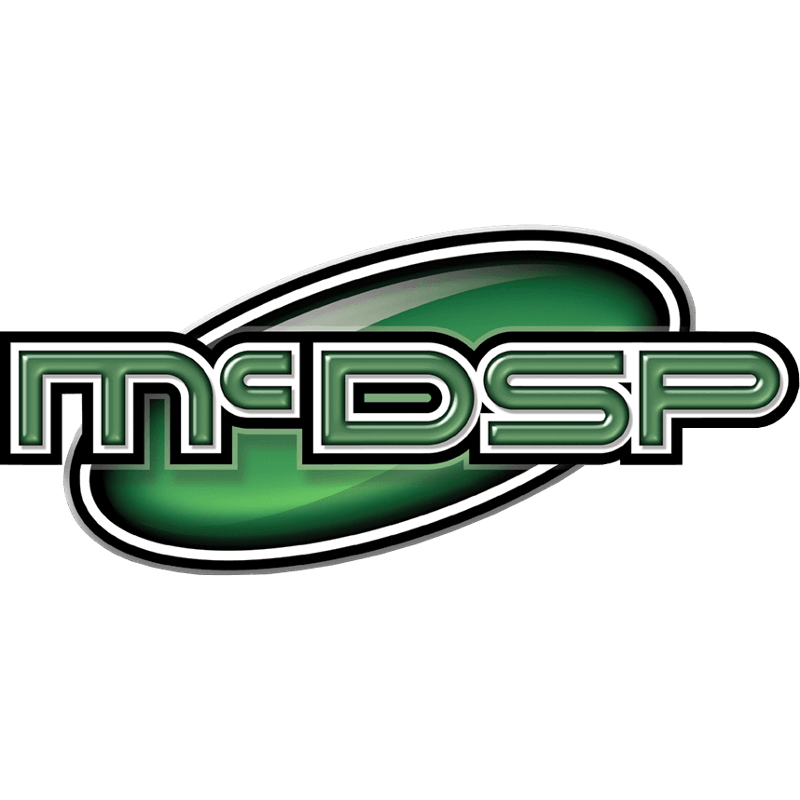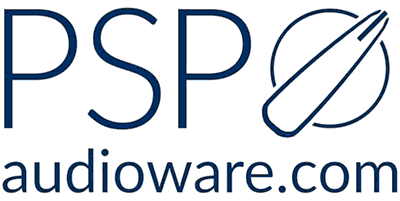Elective Courses for Prospective Candidates
13100 (Music Theory Fundamentals) – Survey of music theory fundamentals: notation, rhythm, scales, intervals, key signatures, triads, and inversions. This course also serves as preparation for the music major entrance exam. 3 credits, 3 hours.
15400 (Keyboard Fundamentals) – Introduction to music notation, rhythm, scales, key signatures, and beginner pieces on the piano. This course also serves as preparation for the music major entrance exam. 2 credits, 2 hours.
16100 (Aural Fundamentals) – Introduction to singing and dictation skills: matching pitch, singing scales and rudimentary diatonic melodies, sight-singing, and the fundamentals of melodic dictation. This courses also serves as preparation for the music major entrance exam. 2 credits, 2 hours.
21600 (Music Production: MIDI & Audio) – Overview of contemporary music production, recording, & sound design concepts and techniques including a hands-on lab component. 3 credits, 3 hours.
Spring 1st Year
Music 21800 (The Recording Studio Environment) – Introduction to the recording studio. Studio layout, signal flow, gain staging, patch bays, headphone mixes and talk back. Analog audio concepts, formats and practices. Intro to microphones. Intro to signal processors. Individual and group creative projects. Assigned studio time. Prereq: Permission of the department. Coreq: Music 21900. 3 credits, 3 hours.
Music 21900 (Fundamental MIDI & Audio Production) – Conceptual and practical exploration of Digital Audio Workstations/DAWs. MIDI specification, recording, programming, editing and refining. Audio editing and arranging. Fundamental mixing practices. Digital audio concepts, formats and practices. Individual and group creative projects. Assigned studio time. Prereq: Permission of the department. Coreq: Music 21800. 3 credits, 3 hours.
Music 23100 (Harmony I) – A study of contemporary tonal harmony, melody, and voice leading. Concepts include pentatonic and blues-based tonalities, diatonic modes, and an introduction to functional harmony. Work includes song analysis and composition. Permission of the department. 3 credits, 3 hours.
Music 26100 (Ear Training I) – Rhythm, sight-singing, and dictation skills corresponding to the concepts covered in Harmony I. Pentatonic and diatonic melodies, melodic and harmonic dictation. Work includes song analysis and simple improvisation. Permission of the department. 3 credits, 3 hours.
Music 26800 (Fretboard Skills I) – Introduction to guitar basics corresponding to the concepts covered in Harmony I. Common chords, scales, and progressions. Work includes simple composition and improvisation. Permission of the department. 2 credits, 2 hours.
Fall 2nd Year
Music 32100 (Synthesis and Sound Design I) – Synthesizers in music production and audio sound design. Advanced MIDI techniques. Acoustics review. Voltage and digital control. Oscillators. Modulation and secondary modulation. Envelopes and Low-Frequency Oscillators. Synth filters. Audio-rate modulation, hard sync, width and symmetry modulation. Individual and group creative projects. Assigned studio time. Prereq: Music 21800 and 21900. Coreq: Music 32500 or permission of the department. 3 credits, 3 hours.
Music 32500 (Audio Production Techniques I) – Expert use of production tools and functions in audio and MIDI recording, editing, arranging and collaborating. Thorough examination of signal processing concepts and techniques. Lead sheet creation. Mixing practices, including preproduction, groups, subgroups, sidechain, filtering, levels, headroom and metering. Vocal and acoustic guitar recording. Mixing vocals and small recordings. Flex/elastic time. Pitch correction. Individual and group creative projects. Assigned studio time. Music 21800 and 21900. Coreq: Music 32100 or permission of the department. 3 credits, 3 hours.
Music 23200 (Harmony II) – Continuing study of contemporary tonal harmony, melody, and voice leading. Concepts include diatonic modes, functional harmony, and mode mixture. Work includes analysis and composition. Prereq: Music 2310 or permission of the department. 3 credits, 3 hours.
Music 26200 (Ear Training II) – Rhythm, sight-singing, and dictation skills corresponding to the concepts covered in Harmony II. Diatonic and chromatic melodies, melodic and harmonic dictation. Work includes song analysis and improvisation. Prereq: Music 26100 or permission of the department. 3 credits, 3 hours.
Music 16400 (Keyboard Skills I) – Functional keyboard skills. Playing typical pop-rock chord progressions with appropriate chord voicing and voice leading in various keys. Simple comping from a lead sheet. 2 credits, 2 hours.
Spring 2nd Year
Music 32200 (Synthesis and Sound Design II) – Sampler instrument creation and operation. Commercial music and orchestral sample libraries. Articulation switching and expression. Basic techniques in sound design and underscore for picture and games. Advanced synthesis techniques including additive, granular, analysis/resynthesis, wavetable, waveshaping, etc. Vocoding and other sidechain effects processing. Individual and group creative projects. Assigned studio time. Prereq: Music 32100. Coreq: Music 32600 or permission of the department. 3 credits, 3 hours.
Music 32600 (Audio Production Techniques II) – Advanced music production tools, expert use of automation, and advanced MIDI manipulation. Drum and percussion software. Intro to recording electric guitar and bass. Intro to recording drums. Mixing more complex projects. Basic underscore and post-production practices. Intro to game audio middleware. Individual and group creative projects. Assigned studio time. Prereq: Music 32500 Coreq: Music 32200 or permission of the department. 3 credits, 3 hours.
Music 24200 (The 1960s till Today) – History of popular music from the 1960s to the current music scene. Music ranging from the emergence of Rock and Motown to Punk and Reggae to Gangsta Rap and Alternative Rock explored in terms of cultural developments, technology, economics, and politics. Prereq: Music 231000 or permission of the department. 3 credits, 3 hours.
Music 43400 (Audio and Music Industry Internships) – Supervised internships at professional music and audio technology facilities. Students observe and interact with production and business practices in the professional marketplace. Requires a minimal commitment of eight hours per week. Prereq: Permission of the department. 2 credits, 2 hours.
Fall 3rd Year
Music 32700 (Recording Techniques I) – Review of microphone technology. Microphone positioning. Matching microphones to microphone preamps. Recording session procedures and documentation. Recording techniques for electric and acoustic guitar, piano, electric and acoustic bass, and drums. Advanced concepts in Compression and Equalization. Individual and group creative projects. Assigned studio time. Prereq: Music 32200 and 32600. Coreq: Music 32701 and 37100 or permission of the department. 3 credits, 3 hours.
Music 32701 (Song Production Techniques) – Production Analysis. Song preproduction considerations. Arrangement as a production tool. Developing a production point of view. The Producer and the artist. Individual and group song production projects. Assigned studio time. Prereq: Music 32200 and 32600. Coreq: Music 32700 and 37100 or permission of the department. 3 credits, 3 hours.
Music 37100 (Location Sound) – The study of audio recording on location including dialog, room tone, and sound effects. The course exposes students to the hardware, software, protocols, and work flows of the professional environment. Subjects include boom, plant, and wireless microphones and hops. Location mixer/recorders, timecode sync, slates, sound reports, and power distribution. Prereq: Music 32200 and 32600. Coreq: Music 32700 and 32701 or permission of the department. 2 credits, 2 hours.
Spring 3rd Year
Music 32800 (Recording Techniques II) – Basic tracking and overdubs with various music ensembles. Multitrack editing techniques. Stereo and surround sound microphone techniques. Advanced Music Mixing. Individual and group creative projects. Assigned studio time. Prereq: Music 32700. Coreq: 32801 and 43500 or permission of the department. 3 credits, 3 hours.
Music 32801 (Music Underscore and ADR) – In depth look at the principles and practices of music underscore. Underscore function, style, mood, and themes. Diegetic and non-diegetic music. Analysis of various scores. Voice over recording. ADR (automated dialog replacement) setup, recording, and producing. Matching ADR to production audio. ADR alignment. Individual creative projects. Assigned studio time. Prereq: Music 32701. Coreq: 32800 and 43500 or permission of the department. 3 credits, 3 hours.
Music 43500 (Audio Post Production) – Synchronization of audio to moving images. Introduction to video and film technologies. Video and audio compression codecs. Introduction to video editing software. FX, Foley, narration, dialog, music underscore, and sound design. Post production mixing. Audio restoration. Broadcast television and film audio standards. Individual and group creative projects. Assigned studio time. Prereq: Music 32700, 32701, & 37100. Coreq: Music 32800 and 32801. 3 credits, 3 hours.
Music 37200 (Introduction to Sound Reinforcement) – An introduction to the software, hardware, practices, and procedures for sound reinforcement. Subjects include: wireless microphones and in-ear monitors. Speaker and amplifier design, construction, and interconnections. Front of house (FOH) and Monitor mixing. “Ringing out” and tuning a system. Concert sound reinforcement, recording, and broadcast. Prereq: Music 32700 and 32701 or permission of the department. 2 credits, 2 hours.
Fall 4th Year
Music 43600 (Advanced Music Production) – Students will explore audio techniques presented in previous courses in greater depth and detail. A capstone project is required for each student in this course. These projects are presented to the students and staff of the Center and guest professionals at the end of the semester. An in-depth study of mastering. Also presented will be various production techniques, as well as people, organizational and business skills that will be useful in real world recording and production situations. Assigned studio time. Prereq: Music 32800 and 32801. 3 credits, 3 hours.
Music 46000 (Advanced Audio Post Production) – An in-depth study of advanced concepts in audio post production. Subjects will include the Avid Eucon protocol and Avid control surfaces. Mixing for cinema including the 5.1, 7.1, and Dolby Atmos formats. Mixing for broadcast and streaming including the 5.1 and 5.1.2 Atmos formats. Providing deliverables including the creation of a DCP, Blu-ray encoding, Dolby TrueHD, and Dolby Digital+ encoding. An audio post production capstone project is required. Prereq: Music 43500 or permission of the department. 3 credits, 3 hours.
Elective Audio Technology Course Descriptions
Music 31117 (Studio Design Workshop) – An in depth exploration of the design of recording spaces considering the acoustical, electrical, equipment layout, and ergonomic issues involved. In addition, the course covers installation practices for analog and digital audio, MIDI, and video equipment. The maintenance of computers, computer networks, and servers is also covered. Prereq: Music 21800 & 21900. 2 credits, 2 hours.
Music 29900 (The Musician’s Career Guide) – Developing your music business acumen. An exploration of all aspects of music business, marketing, social networking, rights management, and law that is required to successfully manage an artist’s career in the 21st century. Prereq: Music 23200 or 35800. 2 credits, 2 hours.








